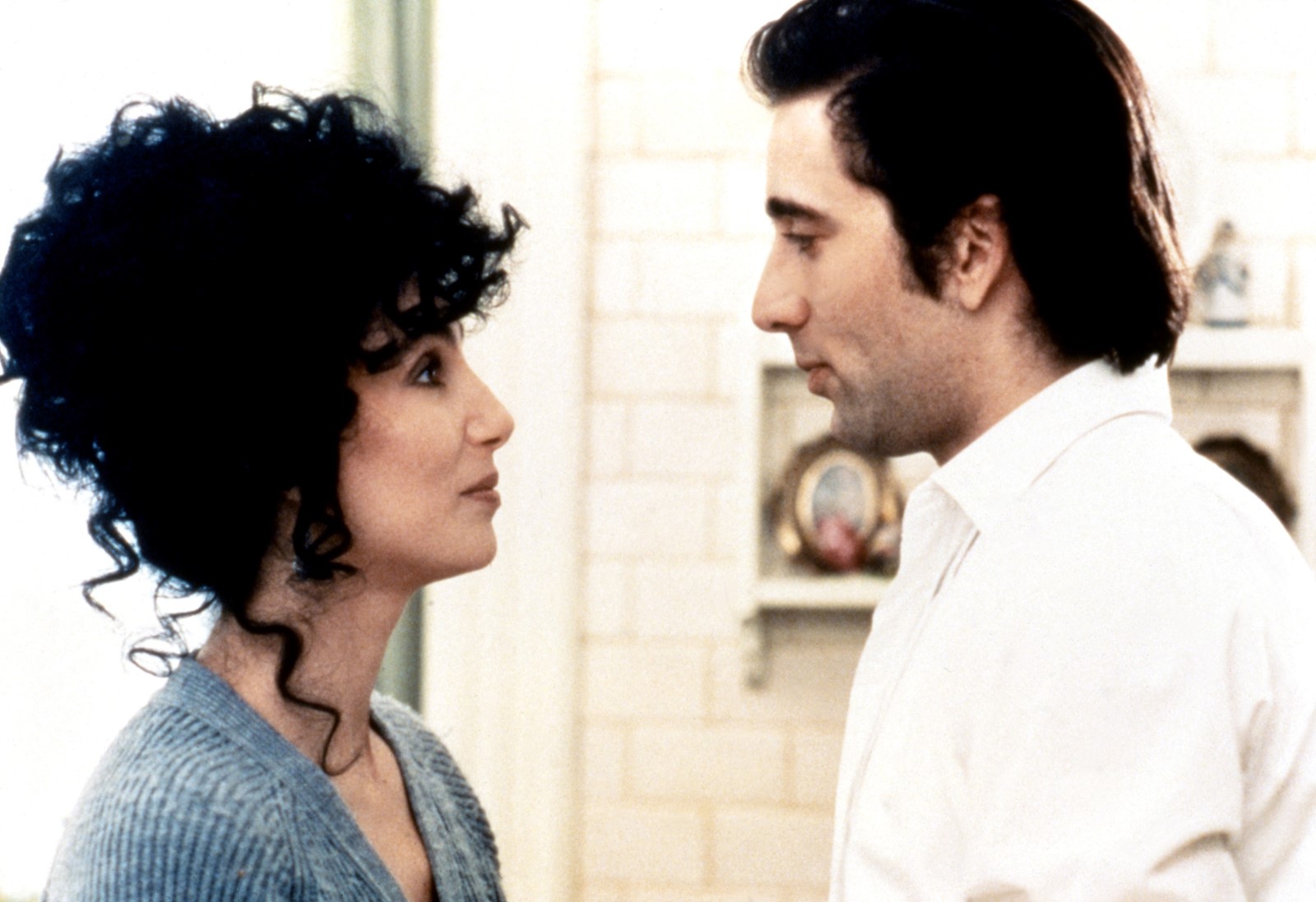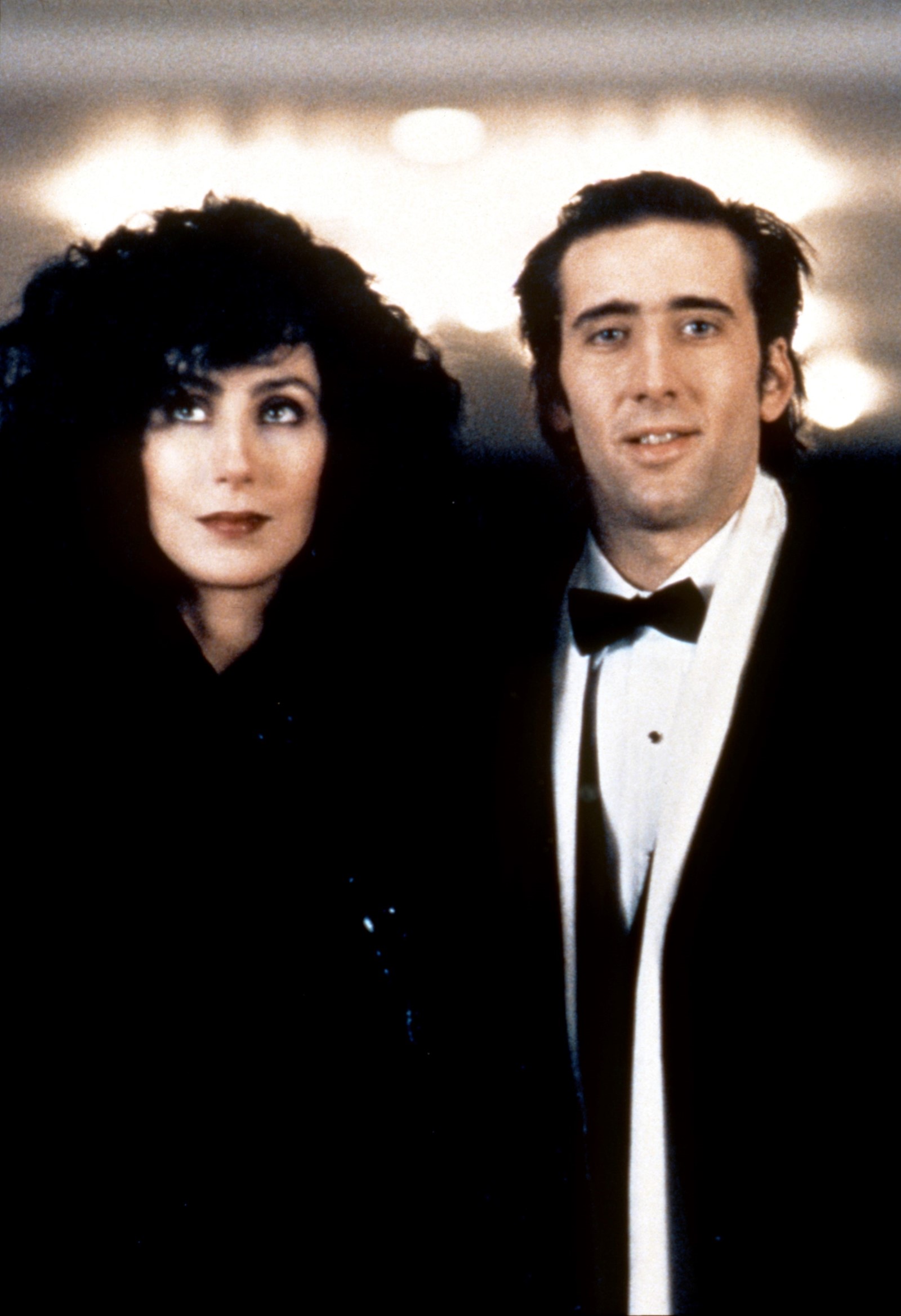Screen Shots: in a new series of flash fiction for AnOthermag.com, critic and essayist Philippa Snow looks at the interior lives of female characters on screen.
One afternoon, at the age of 37, Loretta Castorini – daughter of Rose and Cosmo Castorini, widow to a husband who’d been flattened by a bus – was unnerved to find herself alive, having been dead for seven years. She had adjusted to the afterlife the way you adjust to the temperature when wading into frigid water, letting her whole body become numb and dull. She felt perfectly at home in the mortuary where she kept the books: everything brisk, everything ordered, everything unalive and chilled. And now, a resurrection – four years later than Christ, she thought, her lapsed Catholicism briefly un-lapsing itself, but still glorious in its own way. People often said that lightning didn’t strike twice, and they usually said it about love. They rarely dared to say that in front of Loretta now, however. A bus only has to strike your husband once, she’d shrug, on the rare occasions that they did. And then where are you? Nowhere, gone yourself.
When finally, seven years after her husband’s passing, Johnny’d asked her if she might want to get married, she had been relieved, but she had also remained dead. Johnny didn’t want to kneel on the ancient restaurant carpet because he was scared he’d stain his suit; he hadn’t bought a ring; he didn’t use the correct words. This seemed right for Loretta, even as she made him do things properly instead in order to avoid bad luck. It seemed right that she should not expect too much of anyone’s love, because who could love a ghost? What she needed was another home to haunt; a man whose life she could float around in being wifely, being useful. What Johnny needed for was for his estranged brother to forgive him and attend the wedding, and Loretta, being a book-keeper and a pragmatist, felt this was something she could balance in the ledger of their not-quite-romance. Johnny left for Sicily to see his dying mother. Loretta went to a bakery in Brooklyn whose address she’d scribbled on a napkin, and was startled to discover that as well as being a baker, Johnny’s brother was a wolf.

She had not expected him to be this furious. The wolf paced; the wolf howled; the wolf told her a sad story about why he hated Johnny, which boiled down to the fact Johnny had distracted him one morning at the bakery, and the industrial slicer had made mincemeat of his hand, and his fiancé had left him. If he had to be lonely, why should Johnny have a wife? Why should Johnny, who already got to be a human man and not a wolf, get to be happy? Once the wolf had huffed and puffed sufficiently, Loretta followed him upstairs and served him steak – bloody, she said, to feed your blood – and whiskey – neat, she thought, to fuel the conversation – and then wondered what to say. When they came, the words all arrived at once, fully formed as if they had been written for her by a playwright or a poet. They flew out of her mouth with such alarming force that she was powerless to stop them, and she listened to them with amazement as if someone else was talking. “This woman was a trap for you,” she said, hearing herself getting louder as she picked up steam. “So you chewed off your foot! That was the price you had to pay to be free. And now you’re afraid, because you found out the big part of you is a wolf that has the courage to bite off its own hand to save itself from the trap of the wrong love.”
The air between them crackled, and Loretta knew that she was right, and that she had somehow come to understand this stranger better than she understood herself. This did not make sense, she thought; none of this made sense. Johnny, with his immaculately organised diary and his kind-enough eyes and his apparent disinterest in passion or spontaneity, made sense – and yet still she could not keep herself from seeing straight into the wolf, explaining him to himself, trying to work the trap loose even though she was not sure what he would do when he was out. What big teeth he had, and yet Loretta had never been less afraid. What big eyes he had, and yet Loretta relished seeing herself in them. He was coarse, and angry, and there was that madness in him, and the size of him felt frightening and a little silly at the same time. He looked odd, but he was undeniably beautiful – undeniably himself – in the way that wild things often were. “I’m telling you your life,” she said, and it was true. It was also true that her life and the wolf’s life would be one and the same from that moment on, and there was not a damned thing Johnny and his kind-enough eyes and his immaculately organised diary could do about it.
“I was dead,” she told the wolf as he finally laid her on the bed, and the wolf said “me too.” She would have let him kill her, tear her throat and make her really, truly dead, if that was what he wanted. Imagine her surprise at coming back to life, instead. It seemed strange, the idea that you could rub two people who were dead together and create life, like dead wood creating fire, and yet they had managed it. Afterwards, she pretended to be upset with him in spite of the fact she knew they had done something utterly miraculous, because although one imagines one will be ecstatic when a miracle occurs, the truth is that people tend to be afraid. In fact, science showed that lightning could strike twice, and Loretta recognised that although it was not especially likely, a bus could strike your second husband just as easily as it had struck the first. That was what love was, though – that was being alive. It was a dangerous and thrilling mystery, a terrifying thing. It was a wolf at your door that you let in.
